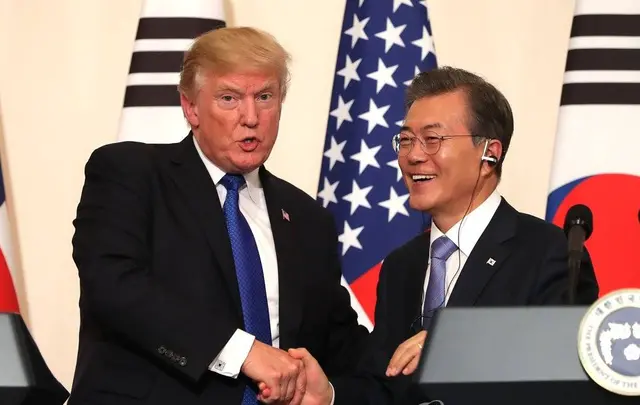North Korea's latest nuclear test on Sunday has triggered a series of responses from the US and South Korea. US President Donald Trump tweeted angrily and US Secretary of Defense James Mattis said that any threat to the country "will be met with a massive military response, a response both effective and overwhelming."
Mattis also said, "We are not looking to the total annihilation of a country, namely North Korea, but as I said we have many options to do so." These have been the harshest words so far from Washington.
On Monday, South Korea announced that it would give the green light to install four more batteries of the controversial Terminal High Altitude Area Defense anti-missile system. It also discussed with the US the deployment of strategic weapons such as nuclear-powered aircraft carriers and guided missiles in Seoul. This will in turn provoke China and Russia.
Despite being small, the Korean Peninsula is entangled with too many complicated interests. Any stakeholder who excessively pursues its own security will add a sense of threat to the other parties. Such a vicious circle may eventually come to a tipping point.
Currently, there are two areas where the tensions may escalate. First, North Korea and the US and South Korea will head into a disastrous military showdown due to miscalculation and mutual provocation. Second, all parties, except North Korea, cannot manage their differences and thus evolve from cooperation to confrontation.
Pyongyang's frequent launches of intercontinental ballistic missiles and its sixth nuclear test have obviously shocked the US. It seems Washington's military menace against Pyongyang is not only verbal. This will add to North Korea's state of alert and its determination to complete its nuclear and missile technology research. A sense of military urgency will prevail between North Korea and the US and South Korea, which may brew a hotbed which causes a fatal strategic misjudgment.
After Pyongyang's nuclear test, Trump tweeted, "The United States is considering, in addition to other options, stopping all trade with any country doing business with North Korea." It is surprising that such words were uttered by a US president because if the US really does so, a much worse crisis will take place than the North Korean nuclear crisis.
China is the main external victim of the North Korean nuclear crisis. It would be of no help if Washington and Seoul claim that China should take the major responsibility to prevent North Korea from conducting nuclear and missile activities and impose pressure on Beijing in an unfriendly manner.
The origin of the North Korean nuclear crisis is the long-term animosity between the US-South Korea alliance and North Korea. China has been making serious efforts to solve the conundrum. If Washington and Seoul cannot solve the crisis and instead place China at the forefront of this situation, they will only mess up the peninsula issue.
Washington needs to accept the fact that it does not hold absolute authority over the world. North Korea, despite its weak strength, could confront the US for reasons America does not understand. Flexing muscles will not intimidate Pyongyang. Washington needs patience to untie the deadlock.
If the US is not able to tame North Korea, how can it force big powers such as China and Russia to yield to its demands through sanctions and deterrence? Washington needs to update its knowledge of international relations and accept a diversified world. This way, it can have the rationality that matches a world leader, a position it desires.
As Washington cannot intimidate Pyongyang, it is even more naive for Pyongyang to attempt to intimidate Washington through owning nuclear weapons.
China, the US and Russia must engage in cooperation with other countries on curbing Pyongyang's nuclear and missile ambitions. China's view on the peninsula crisis and its suggestion of a "dual suspension" deserve serious consideration before a head-on confrontation happens between the US and North Korea. Otherwise, while the Trump administration is trying to correct the mistakes of previous administrations, they could stray further down the wrong path. And North Korea should know there is unlikely to be a breakthrough at the end of the confrontation.
This article
is adapted from Global times, and is not what APD stands for.
(GLOBAL TIMES)
 简体中文
简体中文

